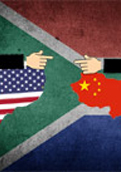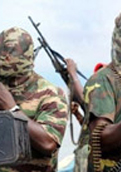Better late than never
Associate Fellow, IDSA and currently Visiting Professor and Chair (India Studies), Department of Political Science and Public Administration, University of Dar-es-Salaam, Dr Anand Kumar’s article on the abrogation of Article 370, titled ‘Better late than never’ has been published by Daily Excelsior on August 27, 2019.
If anything, the abrogation of Article has only reduced chances of conflict with Pakistan. It will lead to improvement in situation in Kashmir. It will allow India to focus on other important things which an emerging power like India should do, writs Dr. Kumar.








